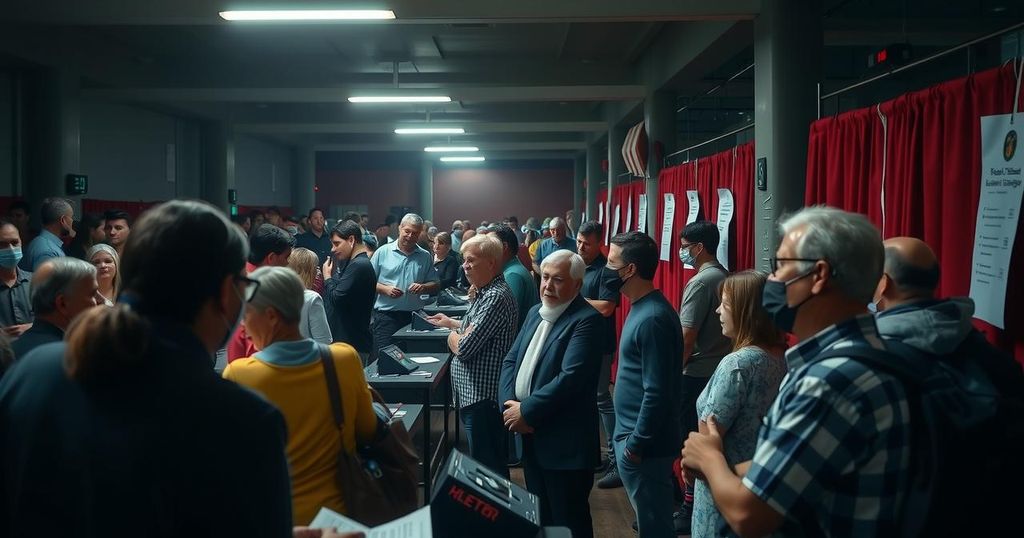Uruguay’s Presidential Runoff: A Tightly Contested Election Awaits

Uruguay’s presidential runoff on Sunday features a close contest between center-left Yamandu Orsi and conservative Alvaro Delgado, with less than 25,000 votes potentially separating them. The election follows a year of tumultuous global politics, as candidates seek to manage economic concerns while navigating a stable political environment. Voting patterns and turnout will significantly affect the outcome as neither coalition holds an outright majority in the lower house.
Montevideo prepares for a decisive moment this Sunday, as voters in Uruguay, renowned for its tranquility and progressive policies, will participate in a closely contested presidential runoff. Center-left candidate Yamandu Orsi will contend against conservative Alvaro Delgado, who is bolstered by an alliance with the Colorado Party, creating a scenario where fewer than 25,000 votes could determine the outcome. The political climate in Uruguay remains notably stable, as opposed to the stark divisions seen in neighboring Argentina and Brazil, allowing for a sense of continuity regardless of the election’s result.
Both candidates approach this election with differing strategies. Mr. Orsi, advocating for a “modern left” perspective, garnered 43.9% of the preliminary votes, while Mr. Delgado captured 26.8% and emphasizes the need to “re-elect a good government” in light of President Lacalle Pou’s previous popularity. Although Mr. Orsi holds a significant Senate majority, the absence of an absolute majority in the lower house complicates the governance scenario for either candidate. As they seek to win over voters from smaller parties and engage those who abstained previously, it remains uncertain if their efforts will yield results. A recent televised debate did not seem to sway public opinion considerably, leaving some voters, like Canelones resident Rosario Gusque, uncertain about their choices now more than ever.
This election marks a critical moment for Uruguay, a country of 3.4 million known for its political stability and progressive initiatives such as the legalization of marijuana. As South America experiences wider political upheaval, Uruguay stands as a relative oasis of calm. The runoff will reflect whether the country will diverge from global norms where incumbent parties face decline amidst economic challenges. Analysts express caution regarding potential shifts in voter sentiment given Uruguay’s solid economic indicators, which may favor the conservative candidates despite pressing social issues.
In conclusion, Uruguay’s upcoming presidential runoff represents a culmination of a year marked by significant electoral activity across the globe. With a heightened focus on economic stability and continuity amid changing political tides, both Mr. Orsi and Mr. Delgado face a delicate balancing act to sway undecided voters. The results of this election will not only shape the country’s immediate political landscape but may also influence regional trends in governance and voter engagement among diverse electorates.
Original Source: www.ndtv.com







